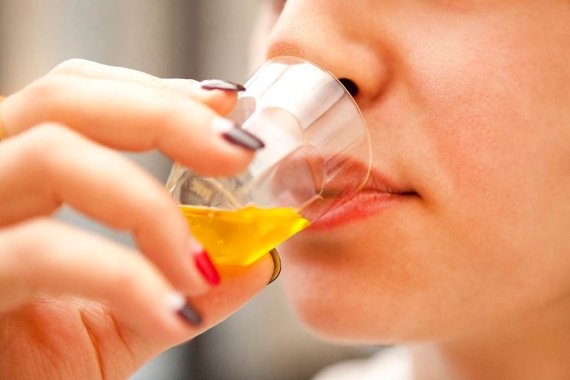
The Sommelier’s advice
Our Sommelier will guide you through this fascinating healthy journey, providing not only the right suggestions on the practices and techniques of tasting extra virgin olive oil, but also advising on the possible uses/pairings of the same with foods.
And remember, each variety corresponds to a precise organoleptic profile!
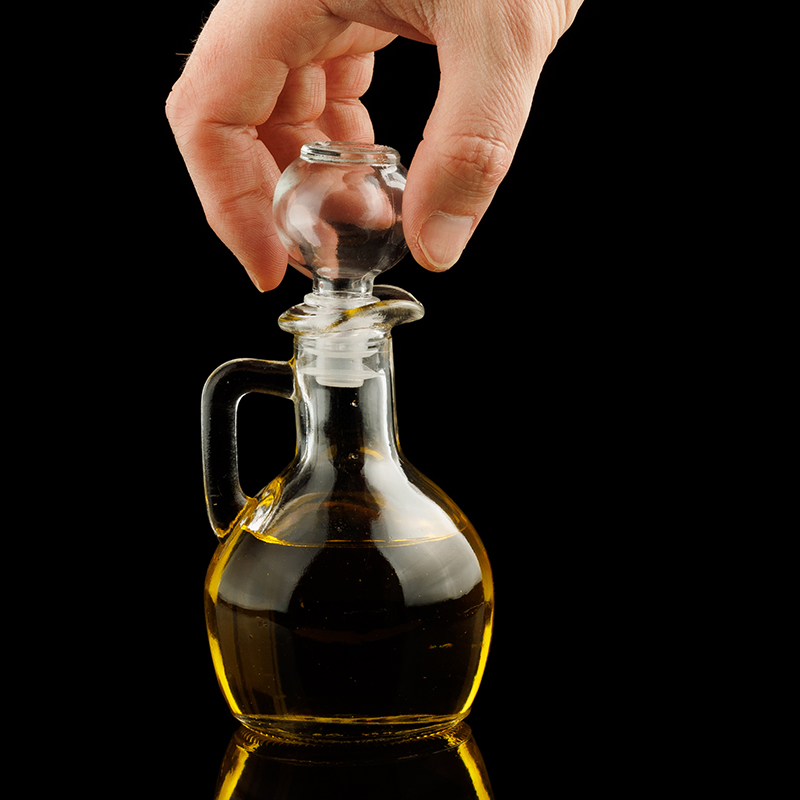
Introduction to the tasting technique
Knowing an extra virgin oil does not only mean learning more about the cultivar and its extraction process, but also learning to recognize its broad aromatic spectrum and the organoleptic sensations that it transmits.
When you taste an E.V.O. oil sensations and flavors are felt on the palate which have been classified according to specific parameters and sensations, which can be summarized in positive attributes and negative attributes (or defects).
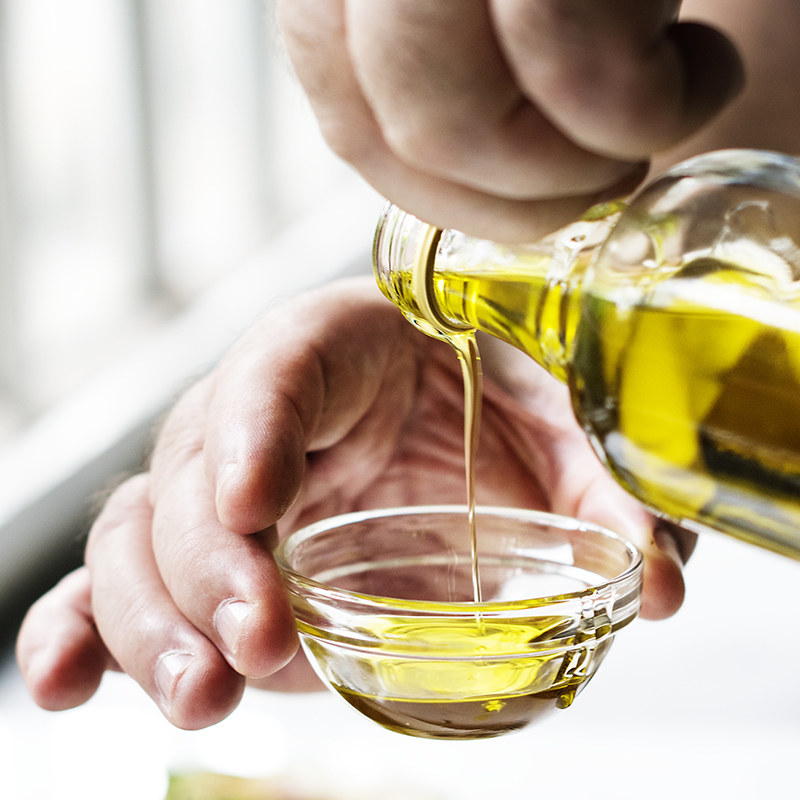
The vocabulary of positive attributes
Fruity: set of olfactory sensations that depend on the characteristics of the fruit (healthy and fresh, green or ripe) and the variety of olives. It can be light, medium or intense.
Bitter: oil obtained from green and darkened olives, it can be prevalent or balanced with respect to spiciness and is only perceived when tasted. The more bitter it is, the richer it is in polyphenols, therefore, it is more beneficial.
Spicy: pungent sensation characteristic of new, fresh oils, and the first reliable indicator of quality.

FRUITY
FLAVORS
banana, pineapple, green apple, pear, peach, lemon, orange, mandarin, almond, walnut, hazelnut, pine nut.
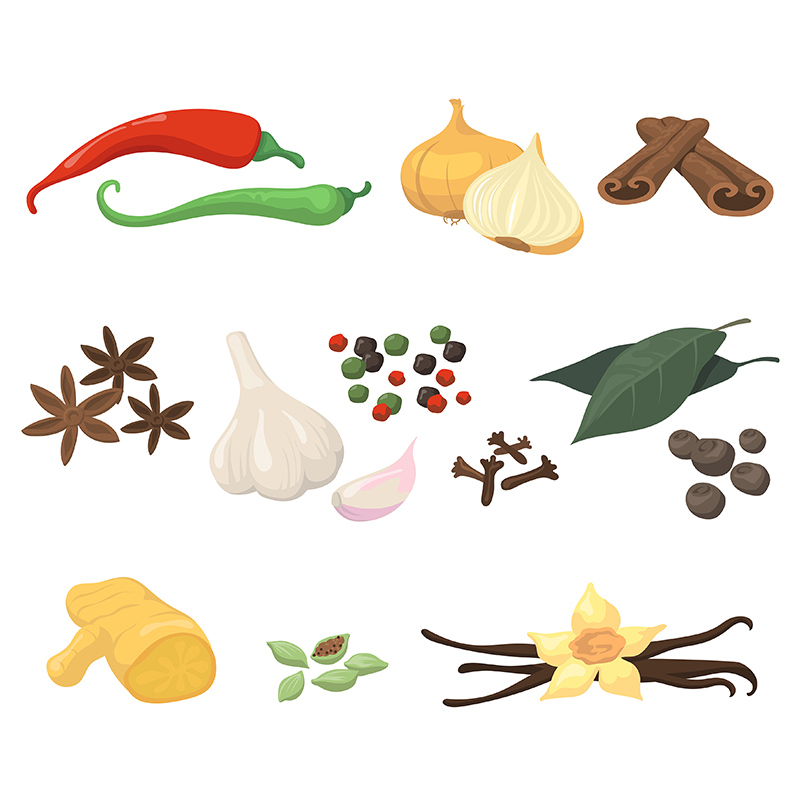
SPICY
FLAVORS
cinnamon, white pepper, green pepper, black pepper, chili pepper, vanilla, nutmeg, ginger.
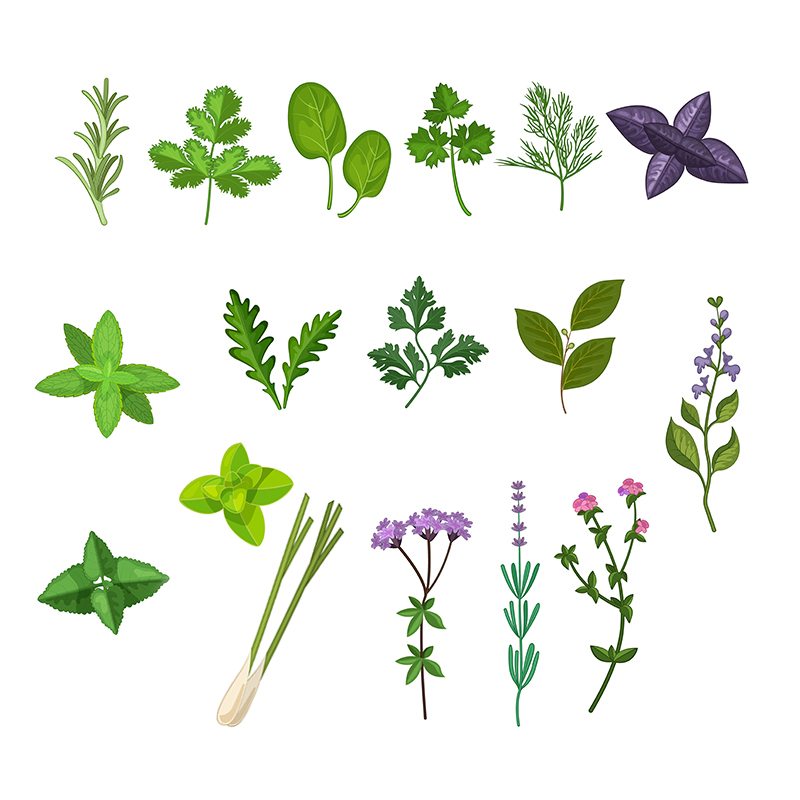
AROMATIC
FLAVORS
thyme, mint, rosemary, marjoram, sage, basil, bay leaf, oregano.
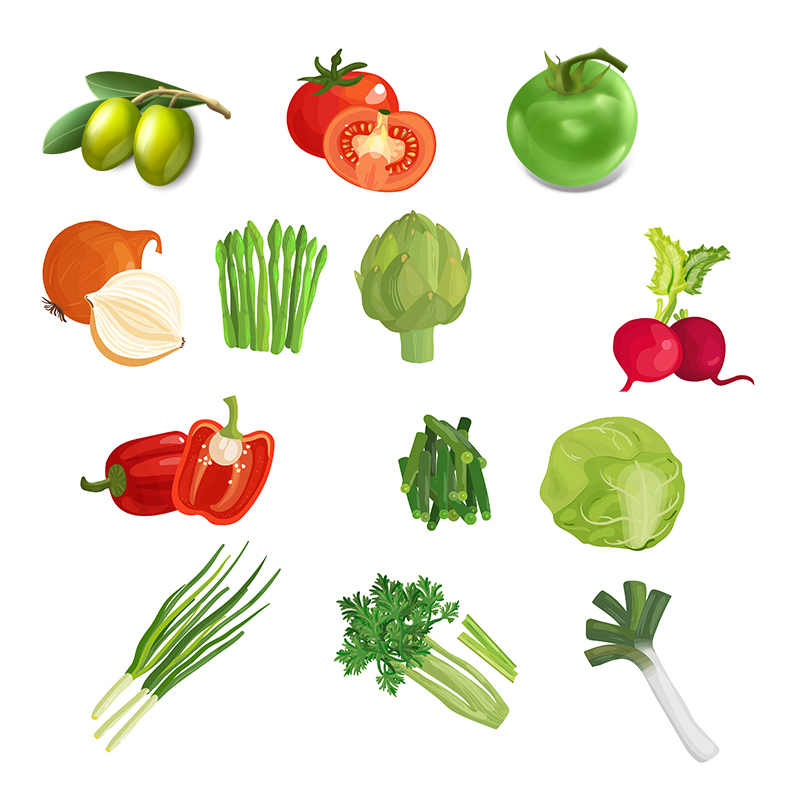
VEGETABLE
FLAVORS
fresh olive, artichoke, pepper, green tomato, chicory, thistle, fennel, lettuce, rocket, celery, cut grass, tomato leaf, fresh hay.
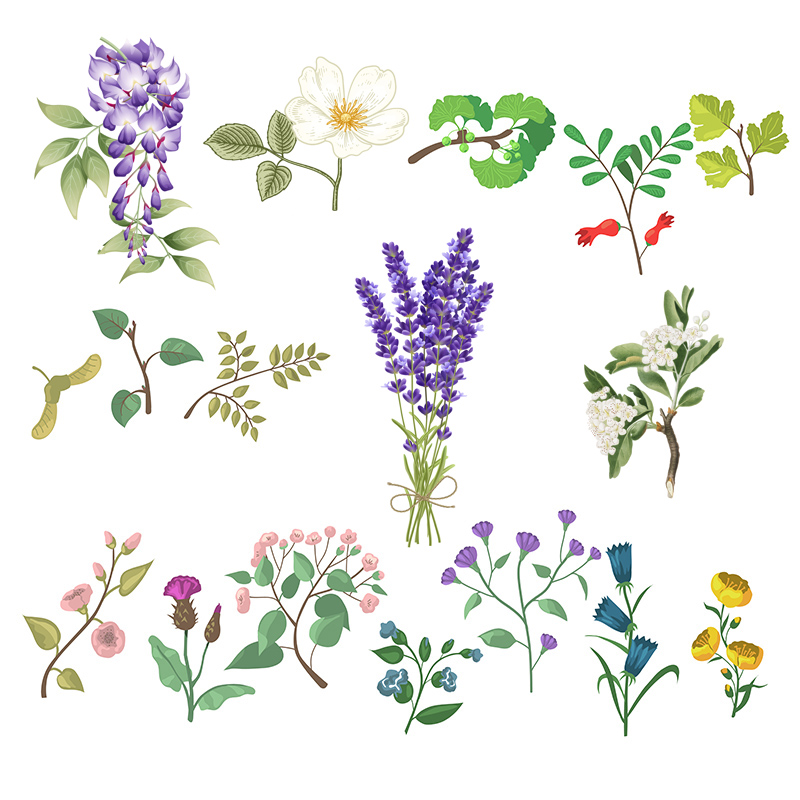
FLORAL
FLAVORS
hawthorn, wisteria, lavender, chamomile, lily, rose hips.
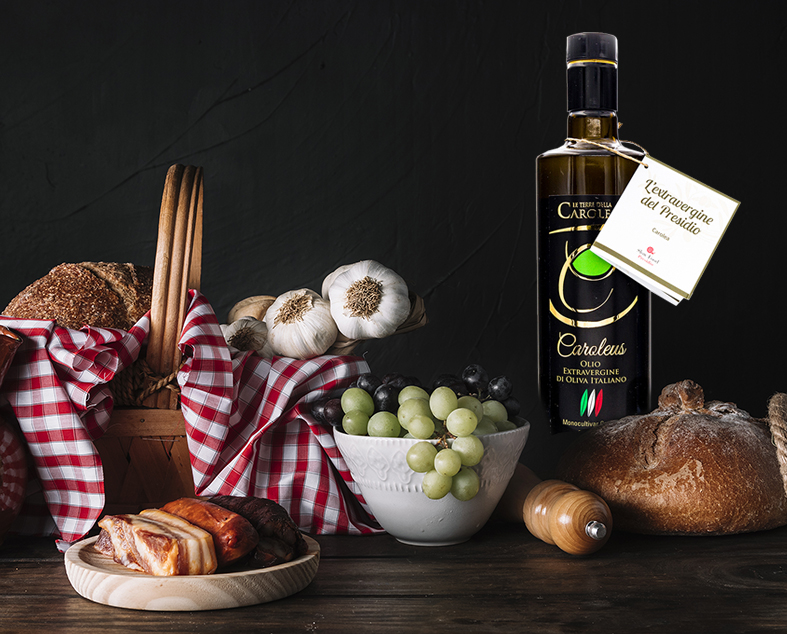
Some advantages of extra virgin olive oil
IT IS GOOD FOR THE HEART: Extra virgin olive oil is good for the heart and cardiovascular health because it is rich in monounsaturated fatty acids.
FIGHTS DIABETES: extra virgin olive oil helps reduce blood sugar spikes after meals. This was discovered by Francesco Violi of the Department of Internal Medicine and Medical Specialties of the La Sapienza University of Rome.
ANALGESIC AND ANTI-INFLAMMATORY: the oil contains a molecule, called oleocanthal, which seems to have the same effect on our body as ibuprofen.
COSMETIC PROPERTIES: the benefits of this extraordinary food do not stop at the well-being of our body but also extend to our appearance. Pure olive oil compresses or in addition to other oils release the antioxidant, emollient and nutrient components which are absorbed by our body and put into circulation, giving benefits to the whole body.
IT IS GOOD FOR THE DIET: it is the condiment with the best balance of fats and is a concentrate of vitamins and minerals.
HELPS THE INTESTINE: it is a highly digestible food and helps the well-being of the stomach and intestines, thanks to its mild laxative properties.
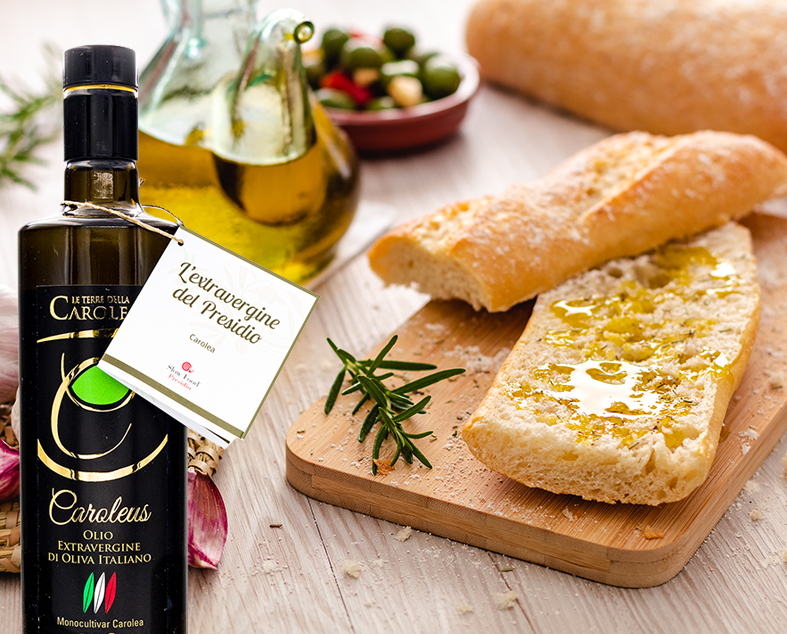
Tips for correct preparation for tasting
– Don’t eat too spicy foods and don’t drink coffee.
– Do not use too intense/strong perfumes.
– Do not carry out more than 10 separate tastings.
– Postpone tasting if constipated.
– Do not smoke before tasting.
– Do not wash your hands with detergent perfumes that could alter the normal tasting.
– Taste the oils preferably mid-morning.

Pour about 20 ml of oil into a dark glass beaker.

Cover the glass with your hands and shake it with a circular motion to heat it and bring the oil to the right temperature of 28° (doing so enhances the volatile aromatic components of the oil).

Bring the glass to your nose and inhale deeply trying to perceive all the different aromatic sensations. Repeat several times if necessary.

Take a quantity of oil equal to about a teaspoon and try to hold it between your lips and tightly closed teeth.

Inhale air with a gentle, then vigorous suction, so as to vaporize the oil throughout the oral cavity, coming into contact with the taste buds (stripping).

Rest your mouth by moving your tongue against the palate.

Try to grasp all the aromatic nuances, recording all the gustatory sensations released.
This is undoubtedly the fundamental phase, the one in which the qualities and defects of the oil examined are perceived.

Expel the oil at the end of our examination.
Soc. Agricola Le Terre della Carolea Srls
Via P. Sgrò 181 – 88025 – San Pietro a Maida (CZ) Italy
Infoline: +39 340 8128408 – info@leterredellacarolea.it
Iniziativa finanziata dal FEARS ——-